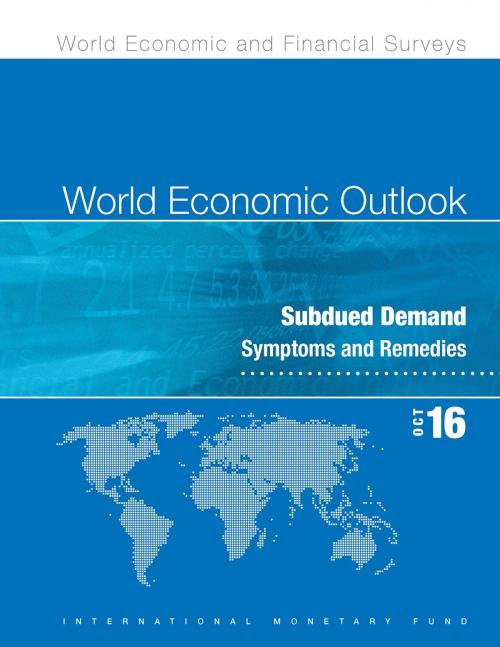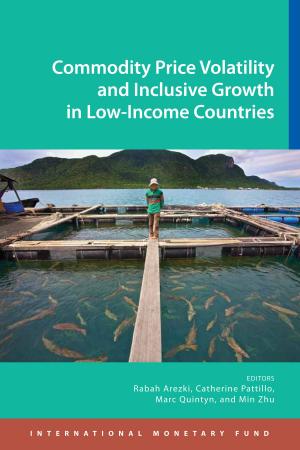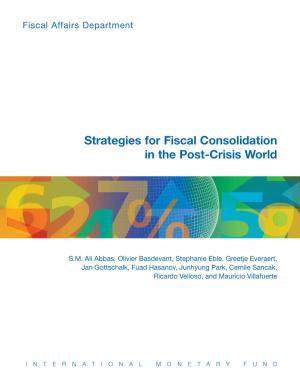World Economic Outlook, October 2016
Subdued Demand: Symptoms and Remedies
Business & Finance, Economics, International Economics, Macroeconomics, Nonfiction, Social & Cultural Studies, Political Science, Politics, Economic Policy| Author: | International Monetary Fund. Research Dept. | ISBN: | 9781475539813 |
| Publisher: | INTERNATIONAL MONETARY FUND | Publication: | October 4, 2016 |
| Imprint: | Language: | English |
| Author: | International Monetary Fund. Research Dept. |
| ISBN: | 9781475539813 |
| Publisher: | INTERNATIONAL MONETARY FUND |
| Publication: | October 4, 2016 |
| Imprint: | |
| Language: | English |
According to the October 2016 "World Economic Outlook," global growth is projected to slow to 3.1 percent in 2016 before recovering to 3.4 percent in 2017. The forecast, revised down by 0.1 percentage point for 2016 and 2017 relative to April’s report, reflects a more subdued outlook for advanced economies following the June U.K. vote in favor of leaving the European Union (Brexit) and weaker-than-expected growth in the United States. These developments have put further downward pressure on global interest rates, as monetary policy is now expected to remain accommodative for longer. Although the market reaction to the Brexit shock was reassuringly orderly, the ultimate impact remains very unclear, as the fate of institutional and trade arrangements between the United Kingdom and the European Union is uncertain. Financial market sentiment toward emerging market economies has improved with expectations of lower interest rates in advanced economies, reduced concern about China’s near-term prospects following policy support to growth, and some firming of commodity prices. But prospects differ sharply across countries and regions, with emerging Asia in general and India in particular showing robust growth and sub-Saharan Africa experiencing a sharp slowdown. In advanced economies, a subdued outlook subject to sizable uncertainty and downside risks may fuel further political discontent, with anti-integration policy platforms gaining more traction. Several emerging market and developing economies still face daunting policy challenges in adjusting to weaker commodity prices. These worrisome prospects make the need for a broad-based policy response to raise growth and manage vulnerabilities more urgent than ever.
According to the October 2016 "World Economic Outlook," global growth is projected to slow to 3.1 percent in 2016 before recovering to 3.4 percent in 2017. The forecast, revised down by 0.1 percentage point for 2016 and 2017 relative to April’s report, reflects a more subdued outlook for advanced economies following the June U.K. vote in favor of leaving the European Union (Brexit) and weaker-than-expected growth in the United States. These developments have put further downward pressure on global interest rates, as monetary policy is now expected to remain accommodative for longer. Although the market reaction to the Brexit shock was reassuringly orderly, the ultimate impact remains very unclear, as the fate of institutional and trade arrangements between the United Kingdom and the European Union is uncertain. Financial market sentiment toward emerging market economies has improved with expectations of lower interest rates in advanced economies, reduced concern about China’s near-term prospects following policy support to growth, and some firming of commodity prices. But prospects differ sharply across countries and regions, with emerging Asia in general and India in particular showing robust growth and sub-Saharan Africa experiencing a sharp slowdown. In advanced economies, a subdued outlook subject to sizable uncertainty and downside risks may fuel further political discontent, with anti-integration policy platforms gaining more traction. Several emerging market and developing economies still face daunting policy challenges in adjusting to weaker commodity prices. These worrisome prospects make the need for a broad-based policy response to raise growth and manage vulnerabilities more urgent than ever.















